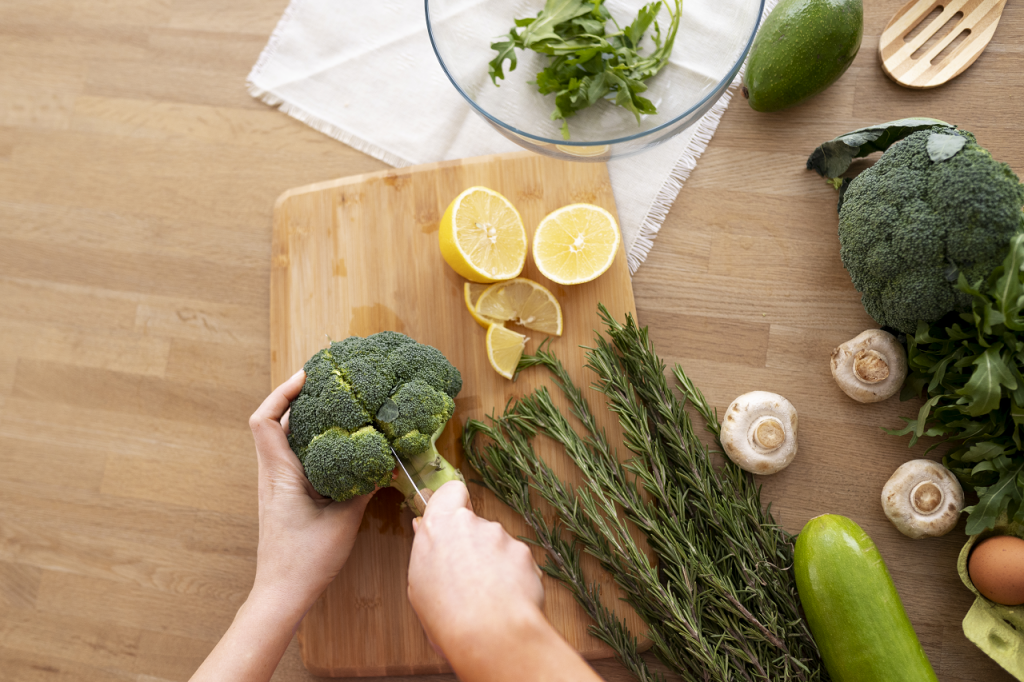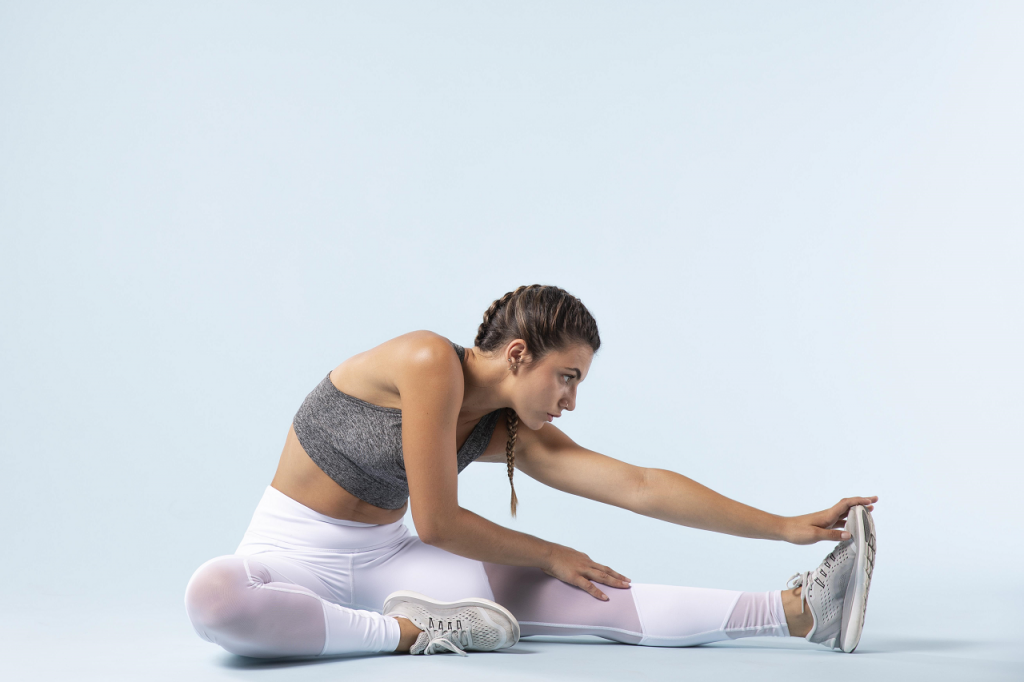Hello, amazing vegetarian athletes! As a seasoned Nutritionist with a focus on the plant-powered community, I’ve dedicated my career to helping you navigate the complex world of nutrition. Today, we’re tackling a crucial topic that often flies under the radar for many vegetarians: vegetarian vitamin D. This nutrient is a powerhouse for health and athletic performance, and getting enough can be a bit of a puzzle on a plant-based diet. Fear not, for I’m here to guide you through maximizing your vegetarian vitamin D intake without missing a beat.
Understanding Vegetarian Vitamin D and Its Importance for Vegetarian Athletes
The Powerhouse Nutrient: Why Vegetarian Vitamin D?
Vitamin D is essential, not just a nice-to-have. It supports bone health, muscle function, and immune system efficiency. For athletes, this translates to improved performance, resilience against injury, and faster recovery times. But here’s the kicker: vegetarian vitamin D sources are fewer and further between than their animal-derived counterparts.
Discover also: How protein supplements are made?

The Vegetarian Vitamin D Challenge
The primary sources of Vitamin D are often animal products or sunlight exposure. For vegetarians, especially those in colder climates or with indoor lifestyles, this presents a unique challenge. But with challenge comes opportunity—to get creative and ensure your body isn’t missing out.
The Best Natural Sources of Vegetarian Vitamin D
While the sun is a fantastic natural source, relying solely on sunlight isn’t feasible for everyone. Here’s where diet and supplementation come into play:
Sunshine on a Plate: Dietary Sources
Fortified foods are a godsend for vegetarians seeking vegetarian vitamin D. From plant-based milks and yogurts to cereals and orange juice, the options are growing. Mushrooms, especially those treated with UV light, are a whole food source of Vitamin D that can easily be incorporated into your meals.
Beyond Diet: The Role of Sunlight
Aim for about 10-20 minutes of midday sun exposure a few times a week, depending on your location and skin type. This natural Vitamin D boost complements dietary sources beautifully, supporting overall health and vitality.
Supplementation: Your Vegetarian Vitamin D Secret Weapon
Navigating the World of Supplements
When sunlight and diet fall short, vegetarian vitamin D supplements become essential. Opting for Vitamin D3 from lichen ensures you’re getting the most bioavailable form of the vitamin without compromising your vegetarian values.
How Much Is Enough?
The right dosage can vary widely based on factors like age, geographic location, skin color, and sun exposure. While 600-800 IU daily is a common recommendation, athletes with higher demands and less sun exposure might need more. Consulting with a healthcare provider can help tailor the dosage to your specific needs.
Synergistic Nutrients: Maximizing Vegetarian Vitamin D Absorption
Vitamin D doesn’t work in isolation. Certain nutrients can significantly enhance its absorption and effectiveness:
The Calcium Connection
Calcium and Vitamin D are best buds when it comes to bone health. Fortified plant-based milks, tofu, and leafy greens are excellent calcium sources for vegetarians.
Magnesium: The Unsung Hero
Magnesium aids in the activation of Vitamin D. Include plenty of nuts, seeds, whole grains, and leafy greens to ensure adequate magnesium intake.
Vitamin K2: The Balancing Act
Vitamin K2 ensures calcium is deposited in the bones rather than soft tissues. Natto, a fermented soy product, is a rare vegetarian source of K2 and can be an acquired taste but worth trying for its benefits.

Beyond Nutrition: Lifestyle Considerations for Boosting Vegetarian Vitamin D
Exercise and Outdoor Activities
Physical activity outdoors does double duty: it supports your health and increases sun exposure. Whether it’s running, cycling, or yoga in the park, integrating outdoor workouts into your routine can boost your vegetarian vitamin D levels.
Mind Your Skin
While sun exposure is beneficial, skin health is paramount. Use sunscreen after the first few unprotected minutes to protect against harmful UV rays, balancing Vitamin D synthesis with skin cancer prevention.
Monitoring and Adjusting Your Vegetarian Vitamin D Intake
The Importance of Regular Testing
Knowing your Vitamin D level through blood tests is crucial for adjusting your intake. Aim for a level that supports optimal health, guided by professional advice.
Tailoring Your Vitamin D Strategy
As your lifestyle, diet, and the seasons change, so too might your Vitamin D needs. Regular check-ins with a healthcare professional ensure your levels remain in the ideal range.
Natural Vitamin D Supplement vs. Synthetic: Making the Right Choice
When it comes to boosting your vegetarian vitamin D intake through supplements, you’re faced with a choice: natural or synthetic? Understanding the differences between these two can help you make a decision that aligns with your health goals and ethical considerations.
Health and Ethical Considerations
The decision between natural and synthetic vitamin D supplements often comes down to personal health goals, ethical considerations, and dietary restrictions. If you prioritize plant-based ingredients and sustainability, natural supplements might be the way to go. However, it’s essential to read labels carefully, as not all natural supplements are created equal.
Consulting with a Healthcare Provider
Regardless of your choice, consulting with a healthcare professional can provide personalized advice based on your specific health needs, lifestyle, and vitamin D requirements. They can help determine the right type, dosage, and form of vitamin D supplement that’s best for you.
Incorporating this section into your article provides a comprehensive overview of the options available to vegetarians seeking to supplement their vitamin D intake. It highlights the importance of making informed choices based on individual health needs, ethical considerations, and dietary preferences.
This article will surely be useful to you: Vegetarian Full English Breakfast: Ideas to Eat Like the Gods
FAQs
How much vitamin D do vegetarian athletes need?
Vegetarian athletes may need a bit more vitamin D compared to non-vegetarians, due to limited sources in a plant-based diet. It’s generally recommended to aim for about 600 to 800 IU per day, but if you’re spending less time outdoors or live in higher latitudes, you might need more.
Can I get enough vitamin D from the sun alone as a vegetarian?
Absolutely! As a vegetarian, you can definitely get a good amount of your vitamin D requirement from the sun. Your skin produces vitamin D when exposed to sunlight, particularly UVB rays. Around 10 to 30 minutes of midday sun exposure several times a week can often meet your needs.
However, factors like your location, skin color, the season, and how much skin is exposed can affect this. If you live in a place with less direct sunlight or have concerns about skin health, it might be a good idea to monitor your vitamin D levels and consider fortified foods or a supplement as a backup. Always a smart move to check with a healthcare professional for personalized advice. Keep enjoying the sunshine wisely!
How do I know if I’m deficient in vitamin D?
Spotting a vitamin D deficiency isn’t always straightforward since the symptoms can be subtle and vary from person to person. However, feeling a bit more tired than usual, having muscle weakness or pain, mood changes like feeling down more often, or even experiencing more frequent bone or back pain can be telltale signs.
The most accurate way to know for sure is through a simple blood test, known as a 25(OH)D test, which your healthcare provider can do for you. If you’re noticing any of these symptoms or just want to be on the safe side, it’s a good idea to reach out to them. Keeping an eye on your health is always important, and it’s better to be proactive.
Are there any vegetarian vitamin D supplements you recommend?
Of course! We recommend the best vitamin d supplement uk: Vitamin D3 and K2, which is vitamin d in capsules. The combination of Vitamin D3 and K2 stands out for its unique cooperative effect on health, primarily aimed at enhancing the strength of bones, muscles, and teeth. This dynamic duo works together to ensure that calcium is absorbed and utilized effectively in the body.

Can too much vitamin D be harmful?
Absolutely, getting too much vitamin D can indeed be harmful. While it’s essential for bone health and our overall well-being, there’s such a thing as too much of a good thing. Excessive vitamin D can lead to a condition known as vitamin D toxicity or hypervitaminosis D.
This can cause a range of issues like nausea, vomiting, weakness, and serious ones like kidney damage due to elevated calcium levels in the blood. It’s quite rare and usually happens from taking supplements in very high doses over a long period, not from dietary sources or sun exposure. Always best to stick to the recommended guidelines and consult with a healthcare professional before starting any new supplement regimen.
Some final thoughts
Maximizing your vegetarian vitamin D intake is a dynamic process, blending diet, supplementation, and lifestyle strategies. The rewards, from enhanced athletic performance to robust health, are well worth the effort. Embrace the journey of fine-tuning your Vitamin D intake, and let it propel you toward achieving your athletic and health goals.
Remember, individual needs vary, and what works for one person might not work for another. Stay in tune with your body, and don’t hesitate to seek professional guidance to tailor your approach to vegetarian vitamin D intake. Here’s to your health, powered by plants and the sunshine vitamin!
We conclude our discussion on ‘Vegetarian Vitamin D: How to Increase It in Your Diet.’ We hope you’ve found this overview helpful. At Vegetarian Protein, our commitment is to cater to vegetarians with sports supplements. Please don’t hesitate to return whenever you have queries or require a product.



